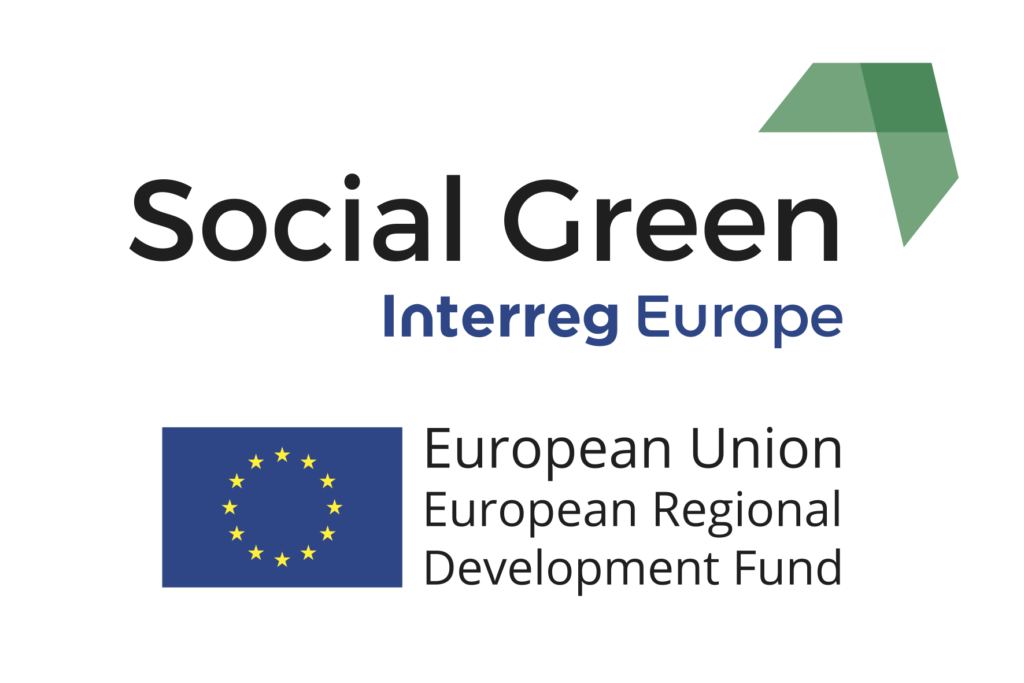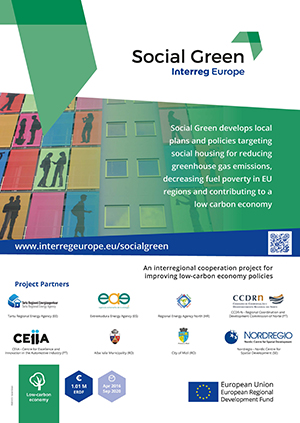The Social Green project intends to address the issue of green social housing in order to contribute to reduce the GHG emissions as well as to reduce the fuel poverty indicators in EU regions towards a lower carbon economy.
In more concrete terms, Social Green aims to promote the greening of the social housing sector through mutual learning and development of improved regional policies. It will provide the opportunity to explore green building practices and significantly reduce GHG emissions through cost-effective means while providing much needed housing in a healthy and sustainable manner. Through interregional cooperation Social Green stakeholder regions will identify, share and transfer innovative methodologies, processes and good practices in developing and implementing greener social housing sector policies, targeting new constructions or retrofitting existing buildings.
The project’s sub-objectives are:
- To understand the role of the green building intervention in the social housing sector and the link with fuel poverty;
- To identify green measures for the social housing sector, specifically including energy efficiency and renewable energy development;
- To identify, share and transfer experiences and good practices and to develop joint policy tools and instruments related to innovative solutions for greening social housing sector, namely in the areas of fuel poverty and energy efficiency;
- To develop strategic guidelines and policy recommendations as an integrated toolkit for regional and local authorities,
- To improve regional/local policies by introducing best practices into EU mainstream programmes in order to contribute towards fostering the competitiveness, sustainability and social cohesion of cities, regions and the EU as a whole.
The partnership includes 8 partners from 6 countries (Portugal, Spain, Croatia, Estonia, Sweden, Romania), with capacity to influence the policy instruments related to greening the social housing sector. Nordregio will be lead partner as well as advisory partner by providing scientific and technical support to the consortium. The other partners, mainly municipalities, energy agencies and Managing Authorities will jointly work in the development of the main project’s activities, mainly to develop a produce regional self-assessment reports and regional action plans.





